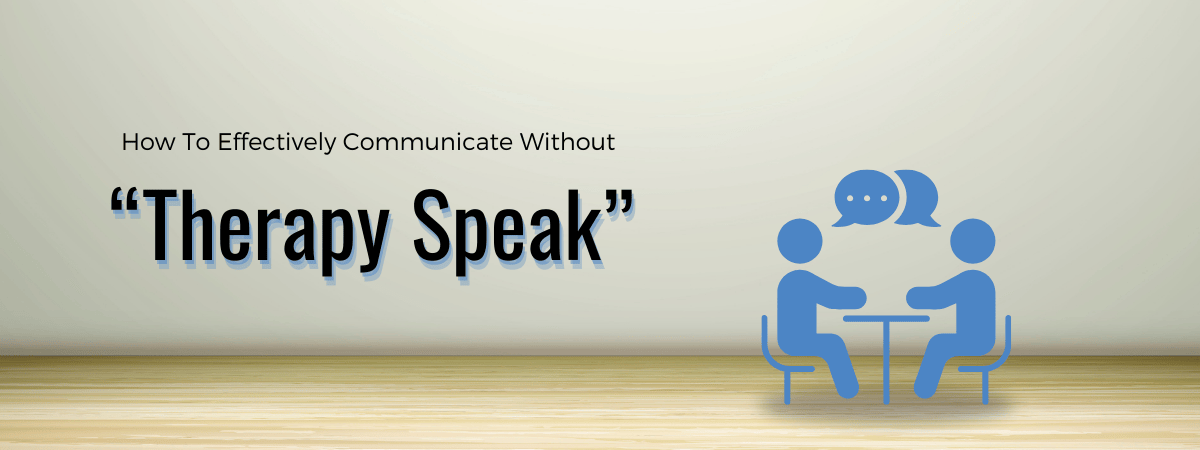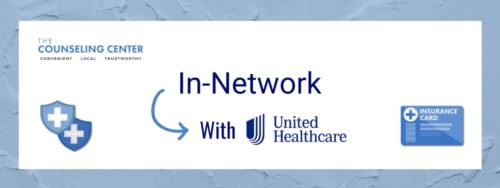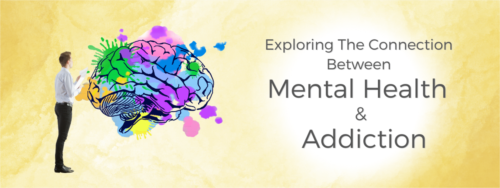

Why You Need To Stay Away From Therapy Speak In Daily Conversations
There’s been an increased emphasis on mental health in recent years, moving previously taboo topics into the open. While this shift is praiseworthy, it has also initiated a phenomenon that can impede genuine conversation: "therapy speak."
This type of discourse is overused, misunderstood, and taken past its true purpose by inexperienced people in daily situations and on modern populist social media like Instagram, TikTok, and more. Find out more about what defines therapy speak, how it impacts people, and find tips on speaking about mental health treatment more productively.
What Is Therapy Speak?
Therapy speak refers to employing psychological terms, often borrowed from counseling sessions, in regular discourse. Some expressions have moved out of professional medical settings and become prevalent in headlines, hashtags, and, sadly, frenzied arguments between loved ones.
When these terms are misconstrued in regular communication, they can transform into a means to escape more beneficial dialogue and misinterpret complex emotions. They may even halt valuable interactions with lasting negative implications, as people with no training or qualifications could misdiagnose themselves or loved ones.
Here are several instances of therapy speak:
- “I’m setting a boundary,”
- “That’s triggering for me,”
- “Are you doing the work?”
- “Is it a safe space?”
- “Maybe you’re processing your trauma.”
While these phrases can be valuable within a professional setting at a credentialed facility like The Counseling Center, they are frequently unsuitable in day-to-day life.
Therapy Speak Can Diminish Authentic Conversation
At TCC, we encourage incorporating mental health practices into daily life. But, we also understand the potential disadvantages of using professional or technical language in daily life. Engaging in therapy speak can weaken the genuine intent of discussions, creating barriers instead of cultivating a mutual connection and understanding. We’ve found people frequently utilize therapy speak as a defense mechanism.
There could be a sense that therapy speak can’t be disputed because it mimics what you might experience in a professional setting. Yet effective communication needs empathy, active listening, and mutual understanding.
The Affect of Therapy Speak
1. Eroding Authentic Connections
An overuse of therapy speak can make conversations appear impersonal or distant, eliminating the personal warmth that nurtures real connection. It might “therapize” family discussions, converting significant candid discourse into what may sound like a 30-second reel created by a mental health professional on TikTok.
For instance, exclaiming to someone close to you, “I really must hold space for myself right now,” may seem impersonal and standoffish compared to simply saying, “I’m feeling stressed out and need some time to think.”
2. Improper Use and Misunderstanding
Therapeutic expressions have particular meanings within professional contexts. Improperly using phrases like “narcissistic” or “trauma” not only diminishes their real meaning but can also spread stigma around mental health conditions. Individuals try to diagnose instead of listening and creating time for actual discussion.
The Counseling Center welcomes carefully considered language that values the weight of terms used in therapy sessions, as long as they are not misused or weakened in daily discussions. We find that therapy speak typically breeds confusion, with many phrases utilized to invoke morality. This language may act as a shield to guard us from judgment, guilt, or obligation.
3. Dodging Accountability
Although concepts like self-care and setting boundaries are important, therapy speak is often misused to redirect responsibility or avoid accountability. To illustrate, saying, “I’m protecting my boundaries,” to excuse harmful behavior can take away from the trust and honesty needed in strong relationships. There are always new terms to justify self-centered or even hostile behaviors. The phrase “boundaries” has become particularly irksome to professional therapists.
You now hear therapeutic expressions employed when people just don’t wish to do something. In light of all the conflicts that ensue, you may wonder if your “boundary” has more importance than your loving relationship.
How to Communicate Effectively Without Therapy Speak
We believe meaningful communication doesn’t require complex terminology. Rather, it’s about being clear, considerate, and honest. Our counselors have some helpful tips:
1. Speak From the Heart
Concentrate on how you feel instead of relying on buzzwords when sharing emotions. To illustrate:
- As opposed to: “You’re gaslighting me.”
- Try: “When you say that, it makes me feel like my perspective isn’t being acknowledged.”
2. Emphasize Understanding
Try to listen closely rather than label behavior. Counterpoints like “Help me understand where you’re coming from” encourage productive communication.
3. Be Mindful of Your Audience
Note that not everyone is well versed in clinical terms. Using plain, relatable language helps your message resonate more effectively.
4. Use Boundaries Thoughtfully
Boundaries are essential, but they have to be expressed thoughtfully. Rather than: “I’m setting a boundary.” Try: “I need to step back from this discussion for now so I can think clearly.”
Therapy gives you tools, not jargon-filled scripts. Counselors at TCC frequently evaluate how you’re applying what you’ve been instructed to confirm it enhances, rather than detracts from, your relationships.
How The Counseling Center Helps Foster Better Communication
At The Counseling Center, we work to enable patients with the abilities they need to manage their mental health condition while developing more positive relationships. Our offerings include:
- Individual Therapy: Private sessions to strengthen self-understanding and improve emotional intelligence.
- Family and Couples Therapy: Helping families and partners communicate more effectively and resolve disagreements positively.
- Group Therapy: Offering a safe space for authentic communication in a supportive setting. Our professionals stress useful, real-world applications of therapeutic ideas, ensuring you can connect meaningfully with others without depending on jargon.
Find Specialized Mental Health Support Today
If you want to deepen your self-awareness and elevate your relationships, we’re here to help. Discover more about our intensive outpatient and outpatient programs. If you require help right away, please contact our 24/7 hotline at 833-248-6271. Working collaboratively, we can equip you to communicate with clarity, empathy, and purpose—without compromising who you are.
 With the death of Matthew Perry, some people are wanting to know about Ketamine and its FDA-sanctioned counterpart, Esketamine. Heres everything you should know about Ketamine and SPRAVATO.Read Full Article
With the death of Matthew Perry, some people are wanting to know about Ketamine and its FDA-sanctioned counterpart, Esketamine. Heres everything you should know about Ketamine and SPRAVATO.Read Full Article The Counseling Center is now In-Network with United Healthcare. Patients can receive the full spectrum of treatment services, including outpatient and inpatient programs, mental health services, and medication-assisted treatmentRead Full Article
The Counseling Center is now In-Network with United Healthcare. Patients can receive the full spectrum of treatment services, including outpatient and inpatient programs, mental health services, and medication-assisted treatmentRead Full Article Its not unusual to endure both a substance use disorder and mental illness near West Caldwell. The good news is, both may be managed simultaneously.Read Full Article
Its not unusual to endure both a substance use disorder and mental illness near West Caldwell. The good news is, both may be managed simultaneously.Read Full Article

